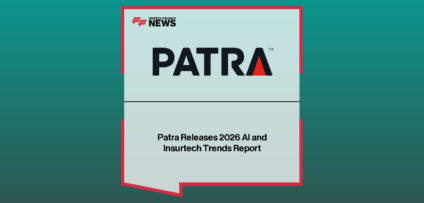Breaking News

Wolters Kluwer and The FT’s Banker Survey 100 Banks, Revealing Plans for Further Integration of Regulatory Data
The overwhelming majority of global banks are planning to integrate their regulatory workflow data. But keeping up to date with the fast pace of regulatory change, as well as staying compliant with changing regulations and adhering to respective regulatory deadlines, is hindering that move. That’s according to a new survey from Wolters Kluwer’s Finance, Risk & Reporting business and The Financial Times owned publication, The Banker. The survey asked 113 senior level executives in risk, finance and compliance functions in banks across the world for their views on the data challenges they face.
Almost all (95.6%) respondents plan to integrate data across their regulatory workflows in the long term. When asked how integrated their regulatory workflow data currently is, a significant majority of respondents – almost eight in ten – revealed they had partially integrated this aspect of regulatory compliance, with plans in place for further integration. However, only 6% of respondents – the majority based in the Americas – have completely integrated regulatory workflow data. Just one respondent said its organization had not integrated and did not intend to integrate its regulatory workflow data.
Three-quarters of respondents also reported that creating an integrated and consistent view of data across the business was a major technological challenge. Just under half (46.0%) also pointed to integrating and merging technology as a significant challenge.
The survey also found that the top concern for banks is keeping up to date with the pace of regulatory change (55.8%), followed closely by keeping compliant with changing regulations and adhering to regulatory deadlines (54.0%). The same percentage of respondents cited data validation and reconciliation of regulatory data with risk and/or financial underlying data as a challenge. Worryingly, 41.6% said they found interpreting regulations a challenge, which could suggest that some firms are struggling to source the appropriate expertise.
Nearly 70% of respondents cited the integration of existing and new technologies as their primary technology challenge. The increasing focus on granularity by regulators means existing systems are no longer fit for purpose and financial firms must integrate new systems that can cater to these needs.
Regulators’ focus on data has put pressure on financial firms’ practices across a wide range of factors including availability, consistency, quality, reconciliation and data lineage. As with many of the issues surveyed, no single factor stood out – financial firms are grappling with a multitude of challenges. Nearly 62% of respondents cited achieving the required data quality as a challenge. The next biggest challenge is ensuring data consistency (53.1%), followed by data availability and the sourcing of critical attributes (49.6%).
Legacy systems are a somewhat inconvenient fact for financial institutions – they have invested significant resources in these systems and are reluctant to abandon them. Their integration with new technologies is a concern, but so too are other issues such as inflexible technology support (cited by 56.6% of respondents) and the multiplicity of legacy products (54.9%). Working with legacy systems by applying a central finance, risk and regulatory reporting data warehouse could make an integrated regulatory workflow a reality, as discussed in previous studies by Wolters Kluwer.
“During the past decade, financial services firms have faced an onslaught of regulatory initiatives designed to strengthen the industry and prevent a repeat of the 2007-8 financial crisis. Many of the solutions that firms built in response were based on multiple technologies and functionalities. Workarounds were often the order of the day, caused by a regulatory compliance approach that was tactical, rather than strategic,” the report’s authors note. “Solutions were costly and inefficient to maintain. Moreover, in recent years regulators have changed their approach, centring on more detailed and granular data, rather than static reports. Data – its management, governance and reporting – is being put at the heart of regulatory initiatives by financial authorities that want deeper insights into firms’ activities.”
In fact, regulations such as the Basel Committee on Banking Supervision’s (BCBS) 239, the International Financial Reporting Standard (IFRS) 9, the Financial Accounting Standards Board’s Current Expected Credit Loss, and the European Central Bank’s AnaCredit are increasing the focus on data structure and management, as previously noted by Wolters Kluwer in its wide range of thought leadership reports.
“Without a holistic approach to data, firms will find it much more difficult to gain insight and analysis across the enterprise. Today technological innovations are enabling institutions to merge their finance, risk and regulatory reporting functions into a set of processes to help meet the twin demands of regulatory compliance and a competitive commercial landscape,” the survey’s authors add. “Data warehouses that link risk, finance and other key functions to merge old systems with new ones can provide banks with a competitive advantage by integrating finance, risk and regulatory reporting duties. However, integrating finance, risk and regulatory workflow data and reporting will be a long journey and is one on which most firms have embarked, but still have a long way to go.”
“Integration should help firms to develop regulatory compliance and reporting solutions that answer the need for increased data granularity and transparent data lineage. This new survey shows just how important regulatory data integration is for the world’s banks,” comments Rajat Somany, Vice President, Global Product & Platform Management for Wolters Kluwer’s Finance, Risk & Reporting business. “Creating and maintaining such solutions requires a focus on data structure and management that permits each piece of information to be understood in the context of others – as a detail when it’s necessary to consider it on its own, but also as a piece of a much bigger puzzle.”
“Data quality is clearly the biggest challenge financial firms face in complying with regulations, as evidenced by almost six out of 10 (58.4%) admitting they were not very confident in the quality of their firm’s data,” Somany adds. “This was mainly due to data management and data governance processes not having been clearly defined, but the lack of relevant technology and resources also play a role for some.”
Companies In This Post
- ComplyAdvantage Fintea Chats: Jodie Gayet on Why Early Support Matters in Financial Crime Prevention Read more
- Why Hybrid Cloud is Becoming the Backbone of Modern Banking Read more
- ING: Learning Before Scaling AI at Speed Read more
- Finance Platform LemFi Launches Remittance Services in Australia as Global Expansion Continues Read more
- Prosus Ventures backs Qureos to slash time-to-hire across MENA Read more















